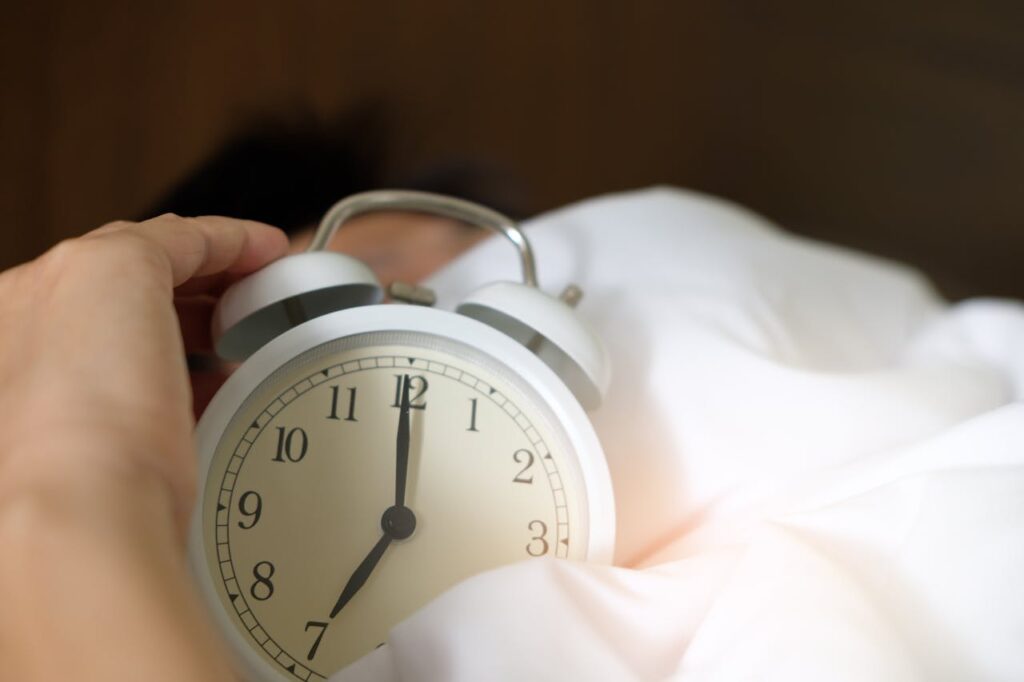In today’s fast-paced world, many men overlook a foundational pillar of health: sleep. We often pride ourselves on our hustle, pushing through fatigue and neglecting our rest. Yet, the truth is that sleep is not just a luxury; it’s a necessity that profoundly impacts mental wellness and physical performance. According to the Centers for Disease Control and Prevention (CDC), about one in three adults don’t get enough sleep. This statistic is alarming, and when you consider that mental health issues—such as anxiety and depression—are prevalent among men, the need for restorative sleep becomes even clearer.

The Critical Link Between Sleep and Mental Health in Men
Sleep is the body’s natural recovery mechanism. It allows our muscles to repair, our minds to reset, and our emotional health to stabilize. Yet, many men dismiss sleep as a weakness. I once fell into this trap, believing that burning the midnight oil was a badge of honor. But as I learned the hard way, sacrificing sleep can lead to a downward spiral of mental and physical deterioration.
For men, the stakes are particularly high. Sleep disorders like insomnia and sleep apnea are more common among men and are closely linked to mental health issues. A study published in the Journal of Clinical Sleep Medicine found that men with sleep disorders are twice as likely to suffer from depression. This is not just about feeling a bit groggy; chronic sleep deprivation can erode your mental resilience, making it harder to cope with stress, manage emotions, and stay focused.
Sleep Disorders and Mental Health Issues in Men
Research indicates that men are more likely to experience sleep disorders like sleep apnea and insomnia, which can exacerbate existing mental health challenges. The National Institute of Mental Health reports that approximately 6 million men suffer from depression, often linked to inadequate sleep. The connection is undeniable: poor sleep can lead to increased irritability, diminished cognitive function, and heightened stress levels, ultimately affecting one’s ability to build muscle and maintain overall health.
In fact, studies show that men who sleep less than six hours a night are more likely to develop anxiety disorders. The American Psychological Association highlights that sleep-deprived individuals are more prone to negative thinking and mood swings, which can spiral into more severe mental health conditions. The cumulative effect of sleep deprivation can be devastating, leading to a higher risk of substance abuse, cardiovascular disease, and even suicide.
The Toll of Poor Sleep on My Mental Well-Being
I recall a period in my life when I consistently averaged only four to five hours of sleep per night. I was training hard, pushing myself in the gym, but my progress was stagnating. I felt irritable, unfocused, and unmotivated. My workouts became a chore rather than a passion. It wasn’t until a close friend pointed out my lack of energy and enthusiasm that I realized the toll my sleepless nights were taking. It was a wake-up call that led me to prioritize sleep in my life, and the results were transformative.
Once I started getting seven to eight hours of sleep, my mood improved significantly. I became more patient, my focus sharpened, and I felt more in control of my emotions. The difference was night and day, and I realized that neglecting sleep was not just hurting my physical performance but was also undermining my mental health.
The Science of Sleep and Recovery
Sleep is a critical component of muscle recovery. During deep sleep, the body releases growth hormone, which is essential for muscle repair and growth. A study published in the Journal of Clinical Endocrinology & Metabolism found that individuals who sleep less than six hours a night have significantly lower levels of this hormone compared to those who get adequate rest. This means that those late-night Netflix binges or early morning workouts at the expense of sleep could actually be sabotaging your gains.
Moreover, the American Journal of Physiology points out that sleep-deprived individuals experience higher levels of the stress hormone cortisol, which can inhibit muscle growth and increase fat storage. Cortisol not only affects your physical performance but also your ability to recover from workouts, making it harder to achieve your fitness goals.
The Role of Sleep in Hormonal Balance
Testosterone, a vital hormone for muscle development, is also affected by sleep. Research published in the Journal of the American Medical Association indicates that men who sleep five hours or less per night have significantly lower testosterone levels compared to those who sleep seven to eight hours. Lower testosterone not only hampers muscle growth but can also lead to increased body fat, fatigue, and mood swings—creating a vicious cycle that can be hard to break.
In addition, a study in Sleep journal reveals that even a single week of sleep deprivation can reduce testosterone levels by up to 15%. This decrease is significant enough to impact your muscle-building potential, libido, and overall sense of well-being. For men striving to maintain peak physical condition, the importance of sleep cannot be overstated.
The Transformation Through Prioritizing Sleep
After committing to a regular sleep schedule of seven to eight hours, I noticed a profound difference. My energy levels soared, my workouts became more productive, and I felt mentally sharper. The weights I once struggled with became manageable, and I started seeing real results. More importantly, my mood stabilized, and I developed a healthier relationship with food and exercise.
I began to wake up feeling refreshed, ready to tackle the day with focus and determination. My performance in the gym improved dramatically, and I noticed a significant increase in muscle mass and strength. The connection was clear: quality sleep was the missing piece in my fitness and mental health puzzle.

Practical Tips for Improving Sleep and Mental Health
- 1. Establish a Consistent Sleep Schedule
Creating a routine can help signal to your body when it’s time to wind down. Aim for a consistent bedtime and wake-up time, even on weekends. This consistency will help regulate your internal clock, leading to better sleep quality. The National Sleep Foundation suggests that establishing a pre-sleep routine—like taking a warm shower or reading—can further enhance your ability to fall asleep quickly and deeply.
2. Create a Restful Environment
Your sleep environment matters. Keep your bedroom dark, cool, and quiet. Consider investing in blackout curtains and a white noise machine if necessary. The less distraction, the better your chances of falling into deep, restorative sleep. The American Academy of Sleep Medicine also recommends keeping your bedroom free of electronic devices, as the light and noise can disrupt your sleep cycle.
3. Limit Screen Time Before Bed
The blue light emitted by screens can interfere with your body’s production of melatonin, the hormone responsible for regulating sleep. Try to avoid screens for at least an hour before bed. Instead, consider reading a book or practicing mindfulness to help unwind. A study in the Journal of Pineal Research found that exposure to blue light before bed can delay sleep onset by up to 90 minutes, making it harder to get the rest you need.
4. Prioritize Mental Health
Mental well-being and sleep are intertwined. Regular exercise, a balanced diet, and mindfulness practices can improve your mental health, which in turn can enhance your sleep quality. Remember, it’s okay to seek help if you’re struggling with anxiety, depression, or chronic stress. The National Institute of Mental Health advocates for cognitive-behavioral therapy (CBT) as an effective treatment for both sleep disorders and mental health issues.

Conclusion
Sleep is not just a passive activity; it’s a critical component of maintaining your mental and physical health. As men, we often push ourselves to the limit, believing that rest is a sign of weakness. But the reality is that sleep is one of the most powerful tools we have for optimizing our performance, building muscle, and safeguarding our mental well-being. By prioritizing sleep, you’re not just improving your health—you’re setting yourself up for success in every area of life.
If you’re struggling with sleep, don’t ignore it. Make the necessary changes to your routine, and don’t be afraid to seek help if needed. The benefits of good sleep are too significant to overlook, and the impact on your mental and physical health is profound.
Further Reading:
Master Mindfulness: Breakthrough Techniques To Overcome Anger And Stress.